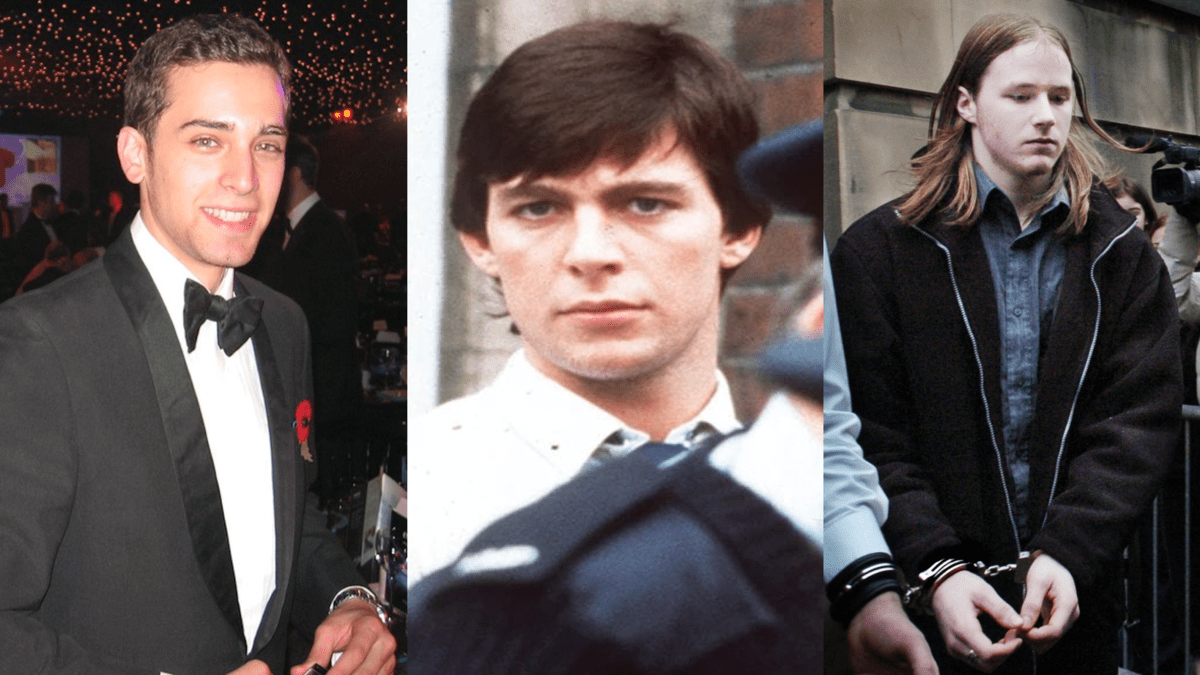As it is revealed that Scottish police disgracefully destroyed evidence in the Luke Mitchell case, we highlight two other equally shocking examples of police evidence destruction and call for reinvestigations of all three cases
Last night, in what he justifiably called a “bombshell” and announced as an “exclusive,” The Scottish Sun’s Douglas Walker revealed that Luke Mitchell, convicted of killing his girlfriend Jodi Jones in Dalkeith, Midloathian in 2003, “could sue prosecutors after it emerged they sanctioned the police to destroy evidence from the murder case.”
According to the paper:
“Cops illicitly destroyed protected evidence from the Jodi Jones murder case, we can reveal. More than 100 legal productions including burnt clothes were secretly uplifted for disposal – against police rules.”
“Now it’s emerged that Mitchell’s legal team could sue prosecutors after it emerged they sanctioned the police to destroy evidence from the murder case.”
“An insider revealed he could argue his right to an appeal has been hampered with Crown Office lawyers now desperate for assurances he won’t take them to court.”
“A letter from the Lord Advocate’s government solicitors admitted the evidence had been taken away – and confirmed destruction had now been halted.”
Continuing, “an insider told The Scottish Sun” that:
“A load of officers from the Major Investigation Team went to Edinburgh to remove over 100 productions. This included some burnt clothes found about a thousand metres from the locus.”
“They loaded boxes into a police van and took them to Livingston police station. The Crown Office had signed off the items to be returned to the owner or destroyed. This is not normal procedure, especially in a murder case.”
“Mitchell could now argue his right to a fair appeal has been denied as evidence has been destroyed. This could lead to a judicial review which could even pave a way to his release.”
Far from being this a lone example of incompetence on the part of Lothian and Borders Police, as we highlighted in our article yesterday about the ongoing campaign to get the 1986 conviction of Jeremy Bamber revisited by the Criminal Cases Review Commission (CCRC), there are sadly many more examples where similar antics have gone on.
In the case of Bamber, critical evidence was burnt in the garden of White House Farm and taken home by officers by Essex Police even and in a further example, that of Mark Alexander, who has been in jail for killing his conman father since 2010, it was just as bad.
Found guilty without any forensic evidence and with the help of Midsomer Murders-esque “suspicious neighbours primarily, supporters of Alexander rightly highlight that the prosecution withheld critical information from trial that included that four potential suspects – who police never bothered to speak to – were never even mentioned to the jury.
Going further and summing up what led to the conviction of Alexander, Progressing Prisoners Maintaining Innocence (PPMI), observed: “Another example of typical factors in a wrongful conviction: no forensic evidence, impossible time frame for the crime to be committed, witness put off by the police, important witnesses not interviewed, lurid allegations in the press published before they could be countered, all racked up by such sad personal circumstances.”
It is time for all three cases to be revisited and at the very least those officers that destroyed key documents and items must be quite rightly be brought to book. Justice is never just if it is based on the police manipulating the evidence that gets that very justice.
Editor’s Note – Unlike as is the case in many publications, this article was NOT sponsored or supported by a third-party.
Pictured Top – Left to right: Luke Mitchell, Jeremy Bamber and Mark Alexander; three men who remain in prison and convicted of murder in spite of there being significant evidence of police mishandling of evidence in each of their unlinked cases.
Evidence Destruction By Police – Campaigns Supporting Mark Alexander, Jeremy Bamber and Luke Mitchell
Here are three men who continue to rot in prison. Each may or may not be guilty of the murders they were convicted of committing. However, though, the protests of innocence of each man should be judged on the merits and failings of each case alone, what links these three men is that the police very, very clearly shockingly botched the handling of evidence that led to each of their convictions.
Each man – Mark Alexander, Jeremy Bamber and Luke Mitchell – as a result of a questioning public and critical experts highlighting the flaws in their cases, has attracted large support. More details about the campaigns seeking reinvestigations into each of their cases follows:
MARK ALEXANDER – Convicted of the murder of his father in 2010; has never ceased maintaining his innocence
To follow the ‘Justice for Mark Alexander’ group on Facebook, click here, and to follow the campaign seeking a review of the case on Twitter go to @PatientCaptive. Prominent supporters include the former Conservative MP for Westminster The Rt. Hon. Mark Field, the Reverend Canon Grant Fellows, the Right Reverend Bishop Tim Stevens and the hostage-turned-humanitarian Terry Waite CBE
JEREMY BAMBER – Convicted of murder of 5 members of his family in 1986; has never ceased maintaining his innocence
To learn more about the Jeremy Bamber Innocence Campaign – whose supporters number former MP Andrew Hunter, barrister Flo Krause, human rights campaigner Peter Tatchell and magistrate Lady Waterlow – and to join those calling for a reinvestigation of this case, click here. Follow on Twitter at @BamberTweets and join the ‘Jeremy Bamber Justice Group’ by clicking here.
LUKE MITCHELL – Convicted of the murder of his girlfriend in 2005; has never ceased maintaining his innocence
To join the official Facebook group focused on highlighting the supposed flaws in the police investigation that led to the conviction of Luke Mitchell, click here. To join the 25,400 people who have already signed the Change.org petition requesting a “full, independent review” of the Luke Mitchell case, click here.
